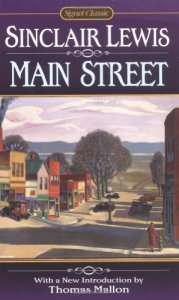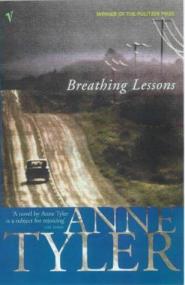
Does the word “classics” cause your spine to tense and your stomach to clench? Do you have bad memories of the long hours spent in the forced reading of these so-called “classics” during your school days? Or are you in the midst of the forced reading as we speak, dreading every minute spent re-reading that page that your brain keeps tuning out?
Please lay aside any connection you have that makes the word “classic” mean “I want to kill/maim/punch everything around me because this book is so boring.” Instead, replace it with this mantra: Classics are our little forest friends. Or you can go with Classics are like a long soak in a bubbly bath that never gets lukewarm, or If you really love your mom, you’ll love the Classics. Any one of those will help you re-wire your brain patterns after about 500 hours of repetition.
Anyway, give these books a fighting chance. They just want to be liked, just like everyone else! Do you want to be the kid that laughs at them on the playground and turns them into insecure, problem-ridden adults? Care for the classics, man. Give ‘em a little love, and they’ll give you a lotta love back.
My Antonia
 Despite my impassioned plea above, sometimes I’m hesitant to pick up the classics myself. Yes, I may be a hypocrite—but I humbly admit my hypocrisy, which actually cancels it out (a great guilt-relieving tool that I just made up.) I especially avoid the classics if they’re written by someone named “Willa Cather”, because ‘Cather’ sounds like ‘catheter’ and nothing good could come of that.
Despite my impassioned plea above, sometimes I’m hesitant to pick up the classics myself. Yes, I may be a hypocrite—but I humbly admit my hypocrisy, which actually cancels it out (a great guilt-relieving tool that I just made up.) I especially avoid the classics if they’re written by someone named “Willa Cather”, because ‘Cather’ sounds like ‘catheter’ and nothing good could come of that.
Anyway, I was at the library recently casting about for something to read, and I saw “My Antonia”. Hmmm, I thought, I might as well, and if I hate it after a few pages I can just return it and nobody will ever know. But guess what—I loved it!
This book is the fictional memoir of a man who grew up on the Nebraska prairie. He recounts the time he spent living with his grandparents as a boy, and really fleshes out the character of Antonia, the Bohemian neighbor girl who, upon her father’s death, is forced to work in the fields like a boy to help support the family. Antonia is strong-willed and hard-working, and embodies the pioneer spirit that shaped the American West. This book has some of the same flavor of the “Little House” books, but without being written for children. Life on the prairie is fascinating, and you’ll get great insight into what it was like for a child to experience its wonders and difficulties. The language is clear and simple, while beautiful; the characters are living and breathing. Read it! You won’t regret it. It was unexpectedly a fun read for me. I think that anyone over 15 would enjoy this, unless they’re biased against the author’s name as I sadly was for so many years. Repeat after me: Cather is not the same as catheter, Cather is not the same as catheter, Cather . . .
Now that we’ve learned that simple lesson, we can move to new heights.
Main Street
This is a wonderful novel written by Sinclair Lewis. Another name I was prejudiced against since it was Upton Sinclair who wrote “The Jungle”, which is one of the most depressing books you could ever read, ending in some kind of a political manifesto which I skipped because it was getting dangerously close to non-fiction.  However, once I realized that the coincidence of the name “Sinclair” didn’t mean it was going to be about maltreated immigrants working and dying in a meat-packing plant, I loved it.
However, once I realized that the coincidence of the name “Sinclair” didn’t mean it was going to be about maltreated immigrants working and dying in a meat-packing plant, I loved it.
Main Street follows the story of an educated city woman who marries a small town Doctor. She has grand views of modernizing the small town they move to and citifying the people she encounters, but things don’t go as she planned. I wouldn’t say it’s a sad book, but as her goals crash down and her marriage isn’t what she hoped for, there is certainly room for reflection for the reader. I have to say the language is refreshing and not overly verbose, and his sometimes surprising word choices jolt you like little electrical charges.
If you enjoy his style, your should also read another of his books called “Free Air”, and follow the adventures of a high-society New York woman who drives cross-country in the 20’s, falling in love along the way with a small-town mechanic who is “below her station” but too adventuring/manly to resist. I absolutely loved this book as well–I mean, what woman can stand firm against a man who helps pull you and your troublesome car out of a miry mud patch?
Breathing Lessons
In a moment of despair because I was coming to the end of “The Golden Compass” and its two sequels, I hopped online and did a search for Pulitzer Prize-winning books. My bookbag can never be empty, or my head will explode. It’s a well-known fact.
OK, I may be cheating because I’m not sure if this book is a “classic.” I mean, does a book become a classic once it’s won the Pulitzer Prize? Or does the author have to be dead? It’s hard to say.
 I chose this book randomly off the list I encountered, and I am so grateful I did! It follows a middle-aged woman named Maggie and her husband Ira as they drive to the funeral of an old friend, and then drive on to visit their son’s wayward wife. We follow Maggie’s thoughts and idiosyncrasies as she tries to reunite her son with his wife, and recalls much about her own marriage as she and her husband drive from place to place. You will love this woman, and she will also drive you crazy: she’s a busybody and a meddler, but there is a purity and simplicity to her intentions that makes her incredibly endearing. As the couple interacts with each other in the car, you start to wonder at this marriage between a sentimental, impulsive woman and a practical, aloof man; the novel ultimately gets at the bonds of love, tenderness, and habit that hold them together. The book examines profound questions using ordinary, accessible characters whose inner beauty isn’t immediately apparent. As the author peels away the onion-layers of her characters via memories, conversation, and anecdote, you start to sense you are getting close to a core of redeeming truth about humanity.
I chose this book randomly off the list I encountered, and I am so grateful I did! It follows a middle-aged woman named Maggie and her husband Ira as they drive to the funeral of an old friend, and then drive on to visit their son’s wayward wife. We follow Maggie’s thoughts and idiosyncrasies as she tries to reunite her son with his wife, and recalls much about her own marriage as she and her husband drive from place to place. You will love this woman, and she will also drive you crazy: she’s a busybody and a meddler, but there is a purity and simplicity to her intentions that makes her incredibly endearing. As the couple interacts with each other in the car, you start to wonder at this marriage between a sentimental, impulsive woman and a practical, aloof man; the novel ultimately gets at the bonds of love, tenderness, and habit that hold them together. The book examines profound questions using ordinary, accessible characters whose inner beauty isn’t immediately apparent. As the author peels away the onion-layers of her characters via memories, conversation, and anecdote, you start to sense you are getting close to a core of redeeming truth about humanity.
Again, as with all my favorite books, the writing style is uncontrived. You don’t get the sense that the author is trying to “write literature.” In fact, you get so wrapped up in the characters that you pretty much forget about everything else, including the existence of an author and the fact that you’re reading something called a “book”. I found this novel refreshing and ultimately uplifting.
What classics have you enjoyed? Any awesome recommendations out there?
Have a great day, everyone! Try to say hello to at least one classic today. Or at least smile in its general direction. See you all tomorrow for an awesome recipe–Mushroom Sage Pasta.
 “So computers are tools of the Devil? thought Newt. He had no problem believing it. Computers had to be the tools of somebody, and all he knew for certain was that it definitely wasn’t him.”
“So computers are tools of the Devil? thought Newt. He had no problem believing it. Computers had to be the tools of somebody, and all he knew for certain was that it definitely wasn’t him.” feels like fluff but engages your brain with its intricate funnyness; if you already like Terry Pratchett.
feels like fluff but engages your brain with its intricate funnyness; if you already like Terry Pratchett.


